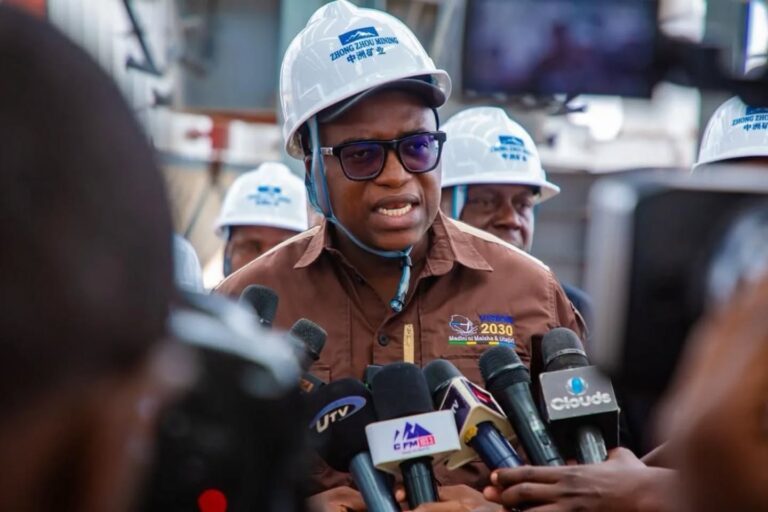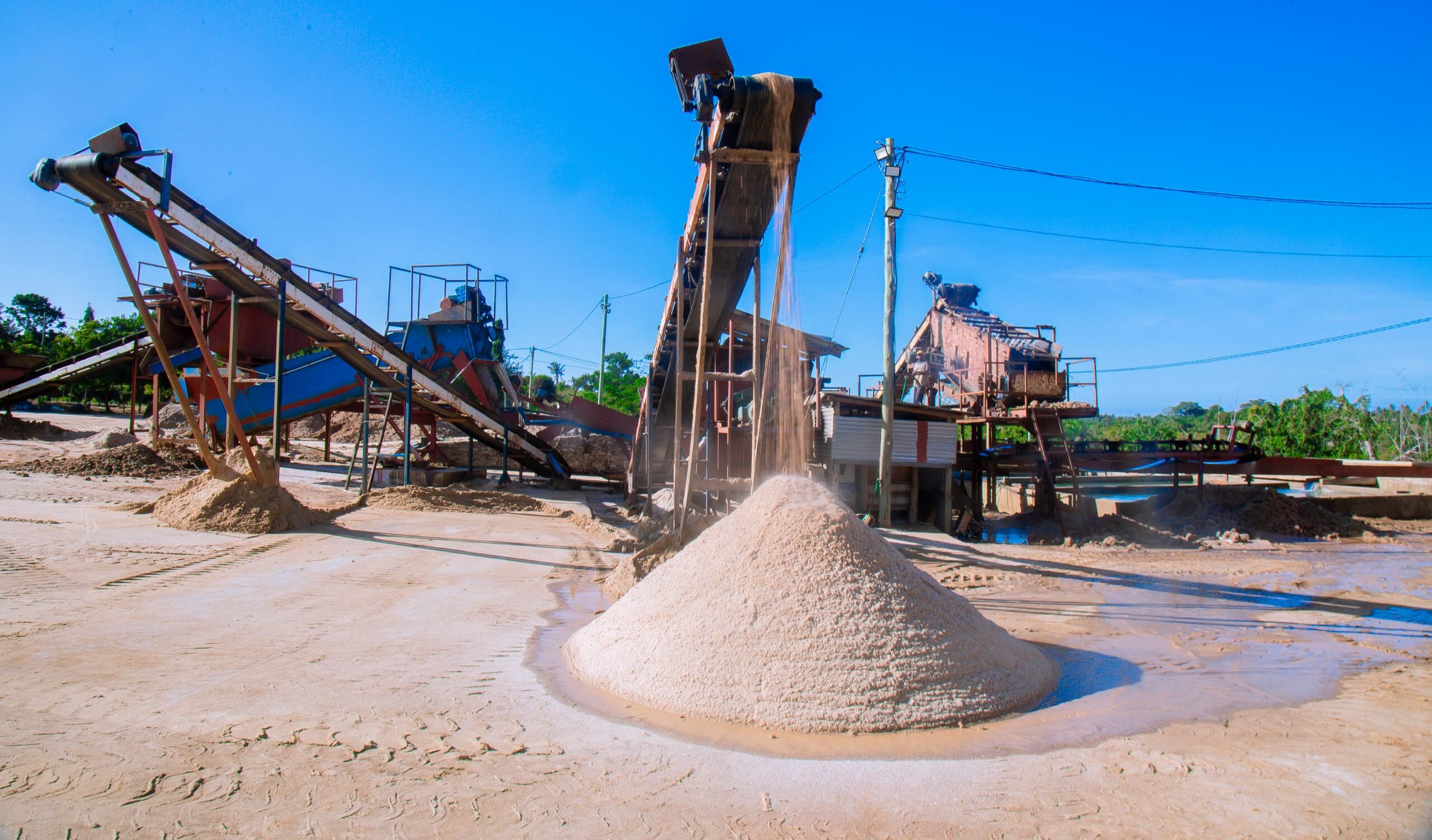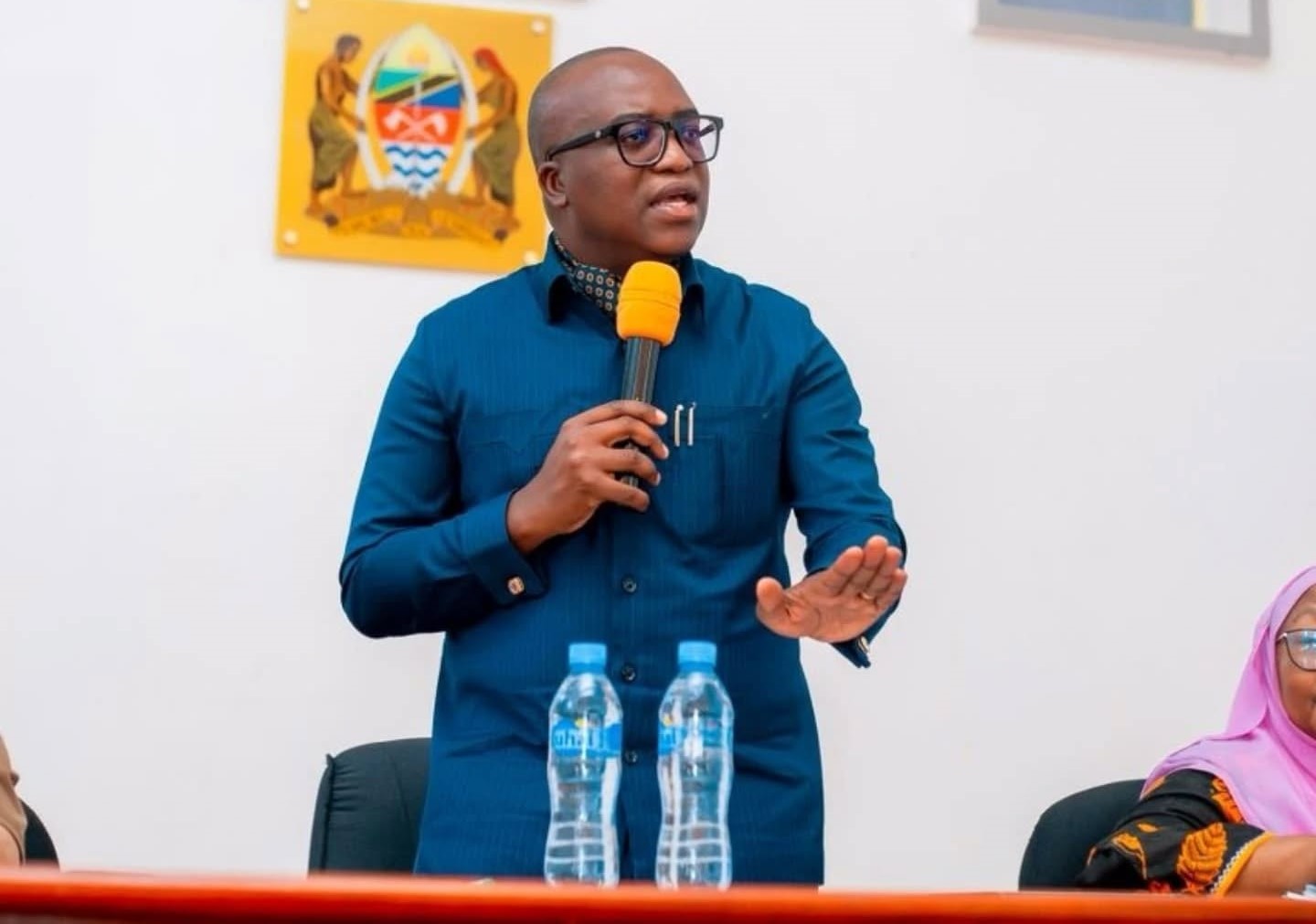Dodoma. Tanzania has recorded a major stride in its long-standing quest to strengthen domestic mineral beneficiation, with the government announcing that construction of the country’s newest nickel and copper processing and smelting plant in Mayamaya, Bahi District, has now reached an outstanding 85 percent completion stage.
The project represents one of the clearest manifestations of the national directive issued by President Samia Suluhu Hassan, which requires that the country must stop exporting unprocessed ores and instead undertake all value-addition processes within its borders before minerals enter regional and global commodity markets.
This policy shift is widely regarded as a turning point in Tanzania’s mineral-sector governance, ensuring that value created from the nation’s mineral endowment remains within the domestic economy rather than being exported for the benefit of foreign industries.
The Minister of Minerals, Mr Anthony Mavunde, who inspected the facility on Thursday, November 21 described the project as one of the most consequential undertakings in the contemporary mining landscape.
“The plant embodies the government’s determination to broaden the mineral value-chain, entrench local industrialisation, uplift small-scale artisanal miners, generate employment, and increase the share of mineral-sector revenues retained in the national economy,” he noted.
His visit, carried out at a time when major reforms are reshaping the mining sector, underscored the administration’s focus on transparency, predictability and long-term sectoral stability.
Processing Plant
The plant’s first production line is expected to come on stream by February 2026.
Once operational, it will have the capacity to process three hundred tonnes of ore per day, translating into annual requirements exceeding two hundred and eighty thousand tonnes of raw nickel- and copper-bearing materials sourced from various mining zones across the country.
The factory will specialise in the processing, smelting and refinement of nickel and copper ores, thereby enabling Tanzania to export intermediate or final mineral products rather than the historically low-value raw ores that have long characterised the country’s trade profile.
This transition is projected to elevate national earnings, enhance the country’s competitiveness in global markets, and support industries reliant on critical minerals that fuel modern technological applications.
Officials indicated that the facility represents an investment worth Sh37 billion, making it one of the most capital-intensive privately developed mineral-processing plants constructed under the prevailing regulatory framework.
Mining Reforms
The plant, developed by Zhong Zhou, is widely viewed as a direct result of wide-ranging reforms that have strengthened investor confidence by streamlining licensing procedures, improving fiscal predictability, tightening local-content requirements, and promoting domestic beneficiation.
According to the Minister, these reforms have begun to recalibrate Tanzania’s identity from a primarily extractive economy into a mineral-processing and industrial hub, aligning the country with global best practices adopted by resource-rich nations committed to value retention.
“I encourage small-scale miners, particularly those involved in nickel and copper production, to prepare for the opportunities that the factory will open for them,” Mr Mavunde noted.
By offering a guaranteed and predictable domestic market for their ores, the plant will cushion miners from long-standing price exploitation by unregulated middlemen and informal trading networks.
For many artisanal miners who have endured volatile market conditions, opaque pricing systems and the unpredictability associated with cross-border mineral smuggling, the Mayamaya facility stands to be a stabilising force that enhances their earnings, promotes formalisation and encourages investment in safer, more efficient production methods.
During his tour, the Mr Mavunde reiterated that the government’s broader objective is to ensure that the entire mineral value-chain is completed within the country.
The shift from simply extracting raw ores to refining, smelting and manufacturing within the domestic economy represents a decisive break from past models in which Tanzania played the role of a supplier of unprocessed commodities.
The government’s goal is to see all stages of the value-chain, from extraction to processing, smelting, refining and the eventual export of processed minerals, taking place within Tanzania.
By redirecting these activities domestically, the administration envisions an economy that retains more value, earns higher mineral revenues, stimulates local industries, and becomes more resilient to fluctuations in global commodity markets.
The plant is set to bolster technology transfer by exposing young Tanzanian professionals to advanced smelting technologies, metallurgical treatment methods, tailings-management systems and industrial quality-control mechanisms that are critical in modern mineral-processing environments.
Dodoma as centre for mineral processing
The District Commissioner of Bahi, Joachimu Nyingo, commended the government for turning Dodoma into a new centre of mineral-processing excellence.
He noted that the progress witnessed in Mayamaya strengthens a growing landscape of nine value-addition factories already established in the region under the current administration.
The District Commissioner emphasised that the presence of such industries in Dodoma decentralises industrial growth, ensuring that development spreads beyond Dar es Salaam and traditional mining corridors such as the Lake Zone and northern Tanzania.
He stated that the new plant will catalyse commercial activity within Bahi District, enhance local government revenue streams and contribute to the emergence of Dodoma as a diversified economic hub.
Leaders of small-scale miners also echoed this optimism.
The Chairperson of the National Association of Small-Scale Metal Miners, Thobias Kente, described the plant as a breakthrough for artisanal miners who have historically relied on unstable markets and suffered from unfair pricing dynamics.
He called upon miners to increase their output, better organise their operations and make full use of the guaranteed market that the Mayamaya plant will provide.
He argued that fair and transparent pricing will empower miners to acquire advanced equipment, improve occupational safety, and significantly scale up production.
The global significance of the project was also highlighted, with the Minister noting that nickel and copper play a critical role in the worldwide transition to clean-energy systems.
These minerals are vital components in electric vehicle batteries, solar photovoltaic systems, industrial electric motors, transformers, electrical cabling, wind-turbine components, power-storage technologies, electronics and even early-stage hydrogen-energy systems.
With global demand for nickel rising sharply as electric-vehicle manufacturing expands, Tanzania is positioning itself not as a supplier of raw ores but as a source of processed, high-value mineral inputs.
This positioning is expected to strengthen the country’s trade profile and align it with the rapidly evolving global energy economy.
The Mayamaya investment is part of a broader national push for beneficiation across a range of strategic minerals that include gold, copper, nickel, graphite, rare-earth elements, coal, iron ore, potash, phosphate, gemstones and various industrial minerals.







